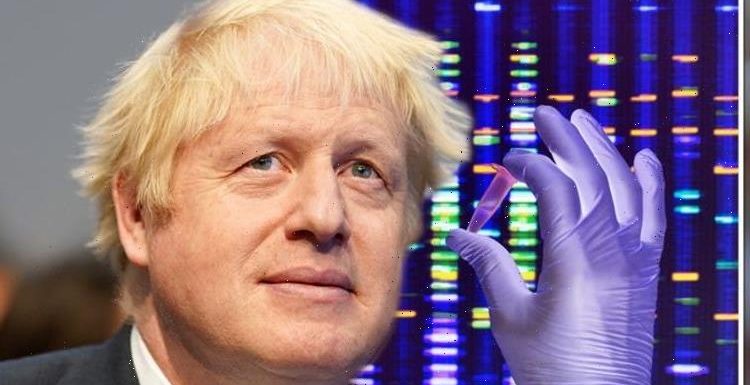
Florida: Genetically modified mosquitoes released by Oxitec
We use your sign-up to provide content in ways you’ve consented to and to improve our understanding of you. This may include adverts from us and 3rd parties based on our understanding. You can unsubscribe at any time. More info
Since 2001, the European Union has followed a stringent set of rules on the development of genetically modified organisms or GMOs. According to the EU, the laws are in place to safeguard public health, the wellbeing of animals and the environment, and to ensure the traceability of GMO products on the market. Many scientists, however, feel the rules are out of touch with the rapid pace at which gene-splicing technology has developed and Brexit could finally give the UK an edge over the economic bloc.
British scientists are already developing crops and livestock that are healthier and less prone to disease by altering their DNA.
And thanks to Brexit, there is no red tape in the way that might have otherwise prevented these products from hitting supermarket shelves.
A team of researchers outside Edinburgh, for instance, is modifying the DNA of chickens to make them genetically immune to the bird flu.
Although the UK has been declared free of avian influenza last month, new strains of the bird flu virus could still crop up in the future and trigger a livestock epidemic.


Researchers at the John Innes Centre in Norwich, meanwhile, have developed an indigo-coloured tomato that has twice the antioxidants of blueberries.
According to a report in The Times, the bizarre fruit was shown to extend the lifespan of cancer-prone mice.
Last month it was also revealed British scientists are using CRISPR technology to develop a “cancer-cutting wheat”.
The new crop would grow with lower levels of asparagine, which is converted to acrylamide when wheat is used to make bread and toast, which was found to cause cancer in rodents.
Since 2012, CRISPR has revolutionised the field of gene editing but the EU has not kept up with the developments.
DNA testing process detailed by genetics expert
And Professor Cathie Martin at the John Innes Centre has now warned the EU will need to reassess its Luddite stance on the technology “or European breeding companies will be easily out-competed by the countries that do allow gene editing”.
The economic bloc has previously come under fire for its rules and regulations, with the 2001 directive being branded “not fit for purpose”.
Just three years ago the European courts controversially ruled to apply stricter rules to gene editing practices such as CRISPR.
The decision followed in the wake of so-called CRISPR-Cas9 technology sparking a debate over the merits of precise and controlled gene-splicing vs techniques that have “conventionally been used in a number of applications and have a long safety record”.


Oddly enough, following the decision, the European Commission stated that “new scientific knowledge and recent technical developments have made the GMO directive no longer fit for purpose”.
CRISPR-Cas9 has been branded a cheaper, faster, and more efficient way of editing genomes by allowing genetic material to be added, removed or altered within an organism.
The technology can be used, for instance, to make crops more resilient and less likely to perish from disease and poor weather.
The EU’s top court, however, ruled all crops made using CRISPR-Cas9 have to follow the 2001 directive and that may have been a great turn off for business, some experts argued.
Kai Purnhagen, a legal scholar at Wageningen University and Research in the Netherlands, said at the time: “From a practical perspective, I don’t think this will be at all of interest for business. So they will move somewhere else.”
Easing the restrictions on GMOs has been one of the key pledges of the Brexit campaign.
In his first speech as Prime Minister in 2019, Boris Johnson declared: “Let’s liberate the UK’s extraordinary bioscience sector from anti genetic modification rules.
“Let’s develop the blight-resistant crops that will feed the world.”
Source: Read Full Article